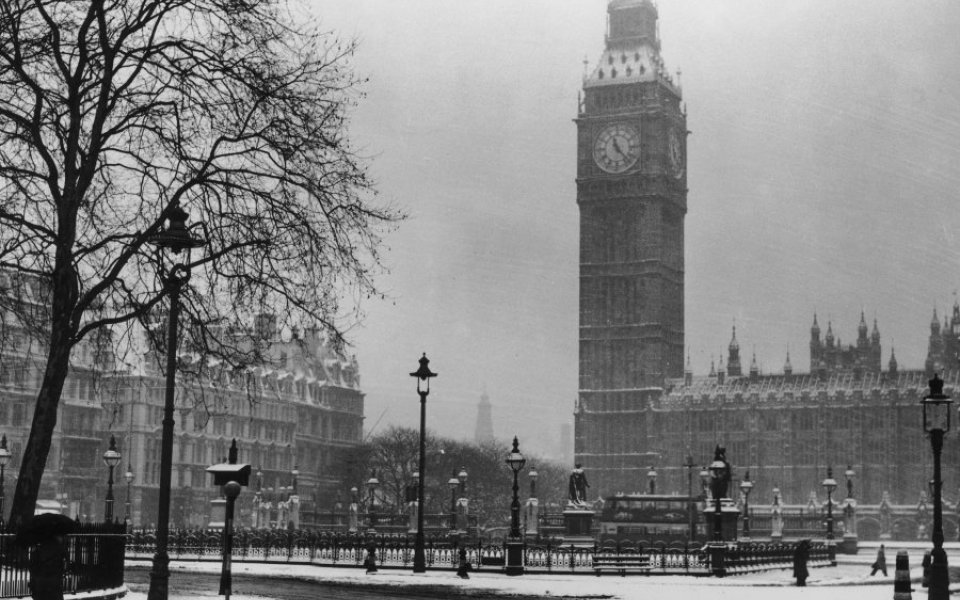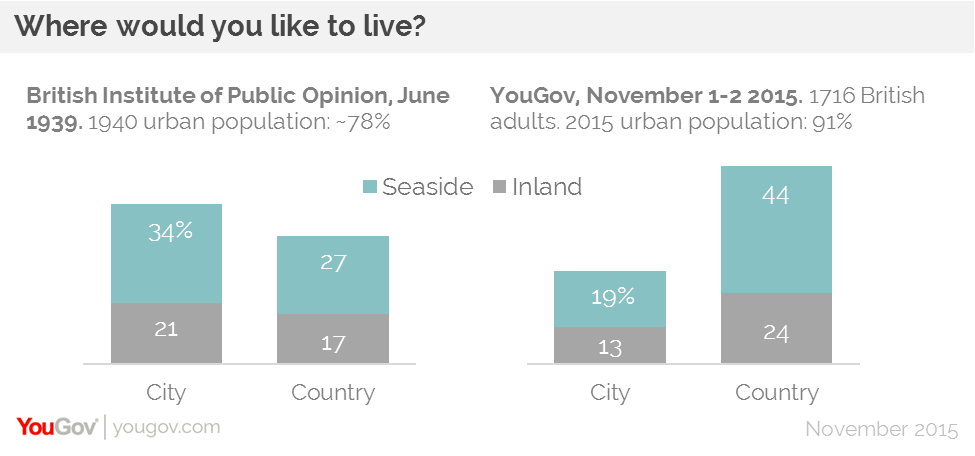Britons less fond of own cities and less welcoming of refugees now than in 1939, according to poll

Since June 1939 people in the United Kingdom have become less enamoured with their own cities, a new poll has found.
The research, by YouGov, found 55 per cent of people in 1939 preferred city living to a country life, whether that be inland or by the sea.
Read more: These cities commute furthest by cycling and running
However, the same question asked to people now found the vast majority (68 per cent) would rather live in the country, indicating less love for the UK's cities.

The poll of 1,716 adults now also found 63 per cent of Britons really do like to be beside the seaside: they'd much rather live on the coast than inland.
YouGov asked the same questions asked by the British Institute of Public Opinion, provided by Findmypast.co.uk, in the months leading up to and including the beginning of World War II on 3 September 1939.
Read more: The best commuter towns around London
The same poll also found in 1939, people in the UK were far more welcoming of refugees, with 69 per cent agreeing the UK should accept more refugees, against 27 per cent who did not want the country to accept any.
That trend has now reversed, with 50 per cent of Britons now not wanting to accept refugees, against 43 per cent who do.

Prime Minister David Cameron has said Britain will accept 20,000 refugees in the next five years, the first of whom should arrive soon.
Meanwhile, YouGov found nearly 90,000 Jews were allowed to settle in the UK before 1940, along with 10,000 from the Kindertransport programme, which helped rescue predominantly Jewish children.
Earlier this year YouGov found a third of Londoners thought they would be "better off somewhere else".